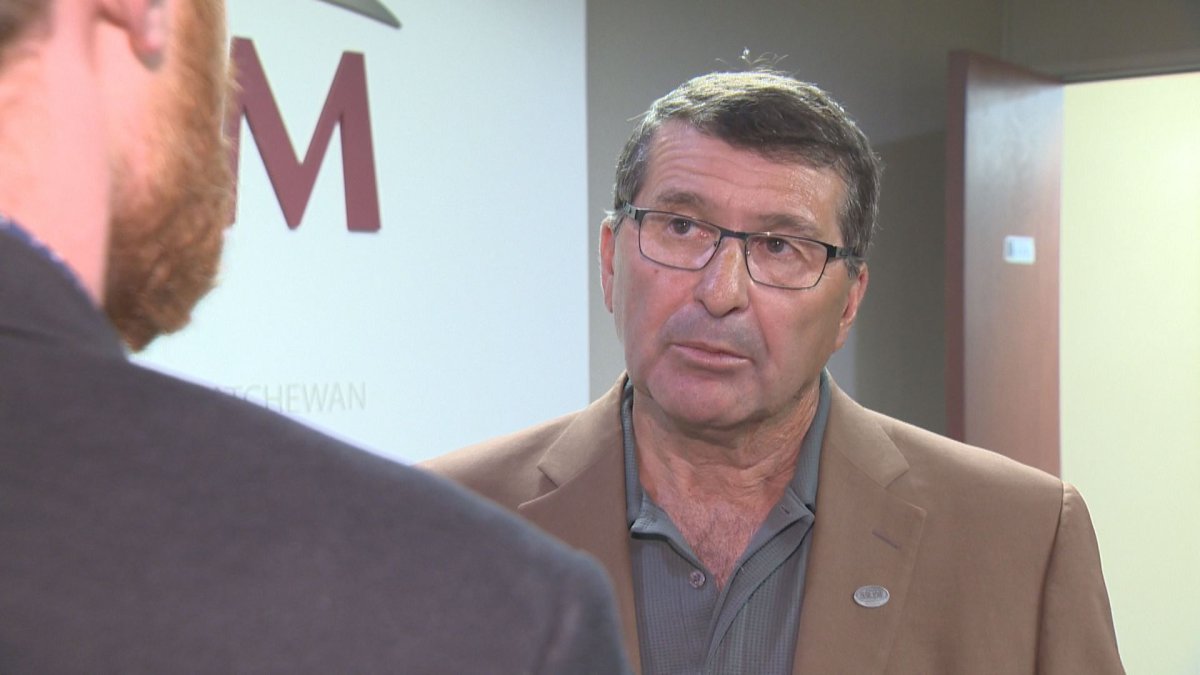Legalized marijuana has the potential to generate millions in tax revenue across Canada, but it’s not yet clear how that revenue will be distributed.

Mayor Michael Fougere said he would like to see that money go into Regina’s coffers.
“As we move toward legalization we know there will be a download of costs to municipalities for bylaw enforcement and licensing for municipalities,” he said.
“What I’m saying, and other mayors are saying, is the revenue that comes in should go to municipalities to cover those costs.”
READ MORE: Toronto’s mayor proposes pot tax to cover associated costs with marijuana legalization
In addition to these costs, Fougere said police will face increased costs as well through the need for increased training in detecting marijuana impairment in divers and future roadside testing technology.
These, and other concerns were voiced by the Saskatchewan Association of Rural Municipalities (SARM) and the Saskatchewan Urban Municipality Association (SUMA) last week in a meeting with Saskatchewan Justice Minister Gordon Wyant.
“We don’t necessarily know what our responsibilities are as municipalities,” SARM president Ray Orb said.
Orb added his biggest concern is adding THC to already high impaired driving rates, especially on rural roads.
“We’re not understanding exactly how we’re going to be able to enforce it. We know that in the province our RCMP officers are already pretty well stretched to the limit,” Orb said.
READ MORE: 376 impaired driving charges in Saskatchewan during June
Fougere and Orb both agree that the proposed legalization date of July 1, 2018 should be pushed back if these questions still linger. Canada’s premiers made the same recommendation last week at the Council of the Federation in Edmonton.
Colorado Impaired Driving
Recreational marijuana has been legal in Colorado for three-and-a-half years. In that time police have found it can be difficult to prove drivers are impaired by smoking pot.
Lt. Robert Garcia with Denver Police Traffic Operations said the department sees 130-150 people being charged with driving under the influence of drugs annually, and around half are marijuana related.
With the lack of a roadside chemical test, like a cheek swab, Garcia said officers do standard roadside sobriety tests. If marijuana is suspected, there is an additional 12 step evaluation such as checking how the eyes react to like and blood pressure checks.
The biggest part of this check is a blood test.
“We prefer to do it at the beginning because the chances of getting a higher read out are at the beginning,” Garcia said.
“Marijuana seems to dissipate out of the system as far as the readings go fairly quickly, so we like to get that blood test as soon as we can.”
The base for determining THC impairment is five nanograms in the bloodstream. However, Garcia said that under the existing legislation this does not definitively prove that a driver is impaired.
“It’s not a slam-dunk like it is with alcohol. You have to prove other indications, like they don’t do well on the roadside, they don’t do well on other parts of the evaluation. All of those things together conclude that someone was under the influence,” Garcia explained.
Federal Response
Federal Public Safety Minister Ralph Goodale said that impaired driving legislation, which covers both drugs and alcohol and was introduced in the spring, is “the toughest legislation in the world”. That legislation will go before Parliament during the fall sitting.
“We’re also going to be making investments in the training of police officers so that they have the skill set to recognize and then deal with drug impaired driving,” Goodale said.
“Also we’ll be making investments in the equipment, the roadside testing equipment to make sure that police officers have all the tools to do their job properly.”
Goodale added that the federal government is committed to working with local levels of government and police to make sure everything is in place in time to implement the new law.





Comments